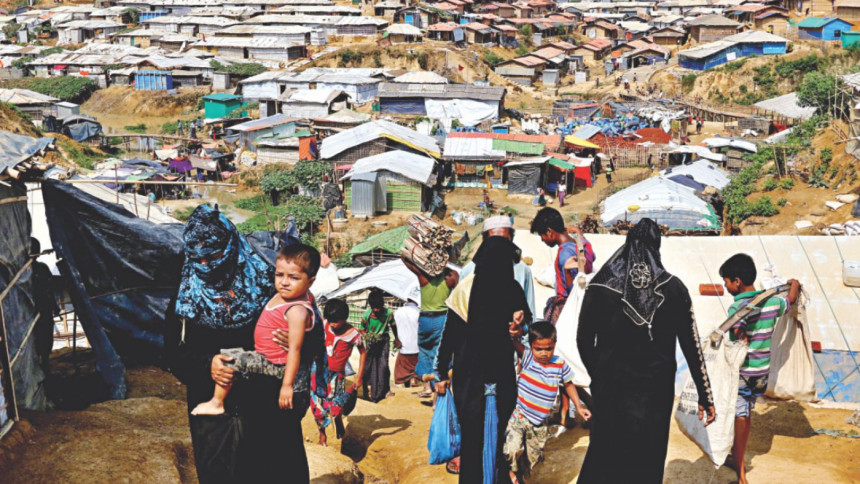UK pledges fresh £70m fund for Rohingya refugees

The United Kingdom has pledged fresh support for the Rohingya refugees sheltered in Cox's Bazar, Bangladesh, ahead of the monsoon season alongside its aid to cholera vaccination.
The latest announcement of an additional £70 million of humanitarian support will protect hundreds of thousands of persecuted Rohingyas during this dangerous time, said a press release of the British High Commission in Dhaka issued today.
The UK, which has been a leading donor, has contributed £129 million to the crisis since August 25, 2017. As part of this, £70 million announced today is a new package of support, not previously allocated to this humanitarian programme.
Its pledge comes at a time when international and humanitarian organisations are raising concerns of monsoon crisis in Rohingya camps where, up until now, 700,000 refugees are living in makeshift housing and in shoddy hygiene conditions.
With the fresh disbursement, the UK aid is expected to provide up to 200,000 people with necessary materials to strengthen their shelters; 300,000 people with food assistance and clean water; 30,000 pregnant and breastfeeding women and 120,000 under-fives with emergency nutrition; 50,000 women – many of whom will give birth during the rainy season – to have access to midwifery care; 52,900 women and girls to bathing cubicles; and 50,000 people access to healthcare services.
UK's International Development Secretary Penny Mordaunt said the scale of this crisis is growing daily. With the devastating cyclone and monsoon season looming, even more lives could be lost, landslides could wipe out shelters and fatal diseases could spread.
"Across the globe countries were quick to respond to the plight of the Rohingya people last year, but what is needed is a longer-term commitment to these vulnerable men, women and children who have suffered so much," he added.
UK aid supported work on preparing the Cox's Bazar camps for the monsoon season began in January.At the time, the UN estimated 102,000 Rohingya men, women and children were living in areas at risk of flooding and 12,000 people were at risk from landslides.


 For all latest news, follow The Daily Star's Google News channel.
For all latest news, follow The Daily Star's Google News channel. 








Comments